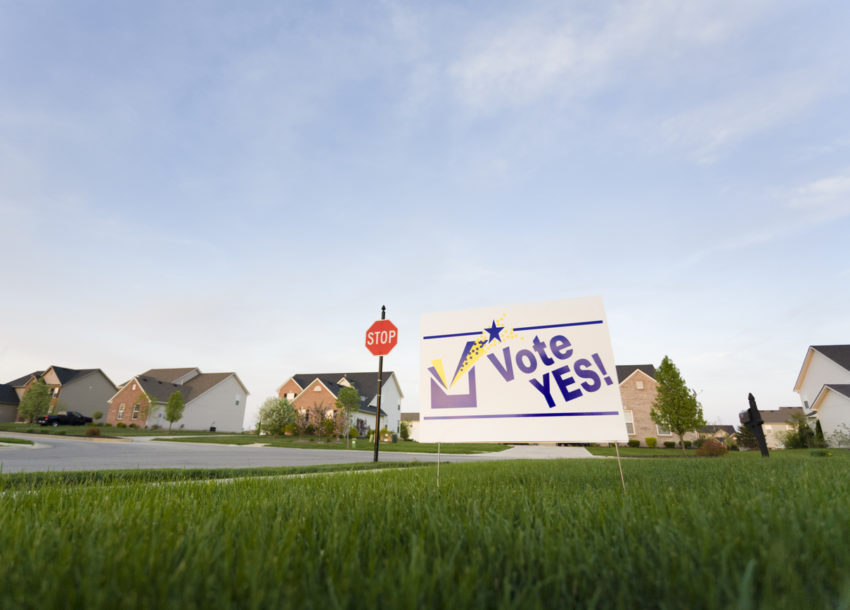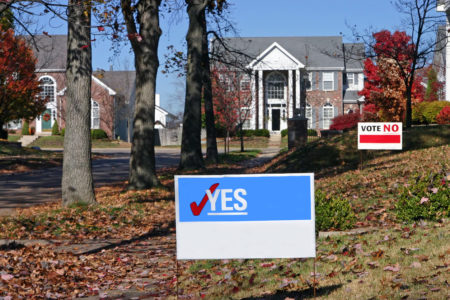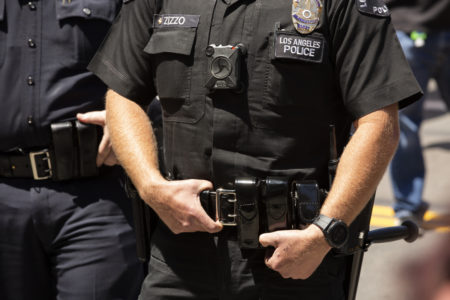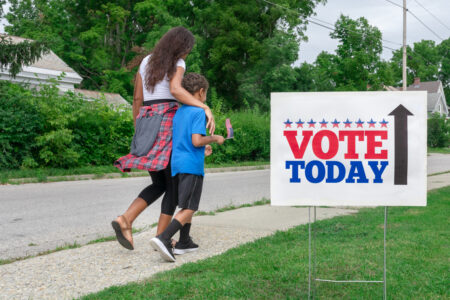
Share On Social!
With the election of Joe Biden, we expect to see a lot of national policy and system changes under the new presidential administration next year.
But, right now, lots of changes are already happening locally.
That’s because, during the election on Nov. 3, 2020, voters in cities and states passed local propositions. These have wide-ranging implications for education, economic recovery, criminal justice reform, and more, especially for Latinos and other communities of color.
Education and the 2020 Election
Childhood education took a high priority in many cities.
San Antonio, a predominately Latino city, was one of them.
Voters approved a one-eighth-cent sales tax to continue funding Pre-K 4 SA, the city’s full-day public preschool program.

“Pre-K 4 SA serves 2,000 students in four centers and provides around $4 million in grants annually to local schools, funding an additional 2,000 to 3,000 preschool seats,” according to reporter Camille Phillips of Texas Public Radio.
With San Antonio’s 65% Latino population, this Pre-K 4 SA proposition will continue to promote equitable educational opportunities. The program already boosts student performance and attendance.
“If the Texas legislature continues to fund early childhood education, [Mayor Ron] Nirenberg said Pre-K 4 SA hopes to make more families eligible to fill the gap between families who aren’t eligible for state-funded pre-k but can’t afford private preschool,” according to Phillips.
Voters in St. Louis approved a tax to invest millions of dollars into early care and education programs. Proponents of the measure hope that this will help make the city more equitable.
“We’re shining our light for kids and families, and my hope is that this is a guiding light that encourages others across our region, state and nation to follow,” said Gloria Nolan, the proposition campaign coordinator, according to Voices for Healthy Kids.
Education-related propositions are also impacting higher education.
Several counties, like Prince George’s County in Maryland and Los Angeles County, voted to increase funding for community college infrastructure, according to Inside Higher Ed.
“The extra resources are more important now than ever due to the pandemic,” according to Madeline St. Amour of Inside Higher Ed. “The funds will help make the campus safe and secure for when students return.”
Arizona and Utah passed state-wide education measures.
Arizona (31% Latino) voted to pass a proposition that will increase teachers’ salaries with an income tax surcharge for taxpayers in the $250,000 income bracket.
“Voters agree that strong schools mean a strong economy,” said Rebecca Gau, executive director of Stand for Children, according to AZ Central.
Utah (20% Latino) voters passed a contentious amendment to the state constitution to use revenue from income taxes to support funding education for children with disabilities.
“This will be a fundamental change to how we pay for schools,” said Jason Perry, director of the Hinckley Institute of Politics at the University of Utah, according to The Salt Lake Tribune. “It’s really a big deal.”
Tobacco Tax and the 2020 Election
Several states passed ballot measures that focused on public health issues like smoking.
Colorado (21% Latino) voters approved a measure to increase taxes on tobacco and vaping products.
“Voters chose to make life-changing investments in our children by providing every kid with access to preschool and implementing smart policy to keep them from getting hooked on nicotine,” said Jake Williams, executive director of Healthier Colorado, according to the Denver Post.
This is especially important for Latino children, who are more likely to develop a daily smoking habit than their peers.
Oregon also passed a measure to tax vapor and nicotine products, with the revenue going to health-related programs for the state.
Economic Recovery and the 2020 Election
Some cities and states passed legislation regarding economic recovery amidst the COVID-19 pandemic, which is disproportionately impacting Latinos.

San Antonio passed a proposition called “SA Ready to Work” that aims to train over 40,000 workers for in-demand jobs.
San Antonio Mayor Ron Nirenberg said the measure will “break cycles of generational poverty that has held back San Antonio families and the San Antonio community for years,” according to Texas Public Radio. “This is our effort to jump start the San Antonio economy to get folks back to work safely.”
Florida (23% Latino) also voted to help families with economic recovery.
But instead of instituting a workforce recovery program, they voted to raise the minimum wage from $8.56 to $15 an hour.
“People who were going to work in a full-time job deserve the dignity of being able to put food on the table for themselves and their family,” said Ben Pollara, senior advisor at Florida for a Fair Wage, according to CNBC.
This could have a substantial impact on the Latino community in Florida, especially as 63% of Latino workers earn low wages, according to the Metropolitan Policy Program at Brookings.
Criminal Justice Reform and the 2020 Election
Several states and cities passed legislation for criminal justice reform in some capacity.
As a result of the racial reckoning that was sparked in the spring due to the killing of George Floyd, many cities had police reform on their ballots.

Cities like Philadelphia, Portland, San Diego, and Columbus voted on increasing the accountability for local law enforcement.
In Columbus, voters approved a citizen panel for police oversight to help investigation for cases of alleged police misconduct.
“I think what we saw today is that people are ready for reform,” said Columbus City Council President Shannon Hardin, according to The Columbus Dispatch. “It looks like it’s going to be clear victory for oversight, for transparency and for accountability.”
Beyond police oversight, voters sought reform on incarceration.
California gained national recognition for its proposition to reinstate the right to vote for people with felony convictions who are incarcerated or on parole.
This is especially impactful in a moment of widespread national criminal justice reform, as Latino and Black people are disproportionately incarcerated.
“Prop. 17 gives Californians the chance to right a wrong and restore voting rights for a marginalized community and people of color,” said California assemblymember Kevin McCarty, according to The Hill. “This is good for democracy and good for public safety.”
Oregon legislators also received national attention for a groundbreaking ballot measure that decriminalized the possession of hard drugs.
This measure changes how the state will handle people struggling with addiction. Instead of trial and possibly a jail sentence, people can be sent to an addiction recovery center.
“This is such a big step in moving to a health-based approach instead of criminal punishment, and we’re devoting significant new resources to help Oregonians who need it,” said Janie Gullickson, co-chief petitioner of the measure, according to Associated Press News.
How Can Citizens Improve Their Community After the Election?
Legislators are moving to bring these new propositions into effect.
But the work isn’t all over.
One thing you can do to help is to declare racism a public health crisis in your city.
Systemic racism and discrimination make it harder for Latinos and Black people to get healthcare, housing, transportation, education, employment, healthy food, safe treatment by police, all of which are worsened by the COVID-19 pandemic.
You can download and use the Salud America! “Get Your City to Declare Racism a Public Health Crisis Action Pack” to fight racism in your community.
The Action Pack will help you gain feedback from local social justice groups and advocates of color so that you can start a conversation with city leaders for a resolution to declare racism a public health issue along with a commitment to take action to change policies and practices.
Explore More:
Increasing Civic EngagementBy The Numbers
50
percent
of big U.S cities have a local board of health



